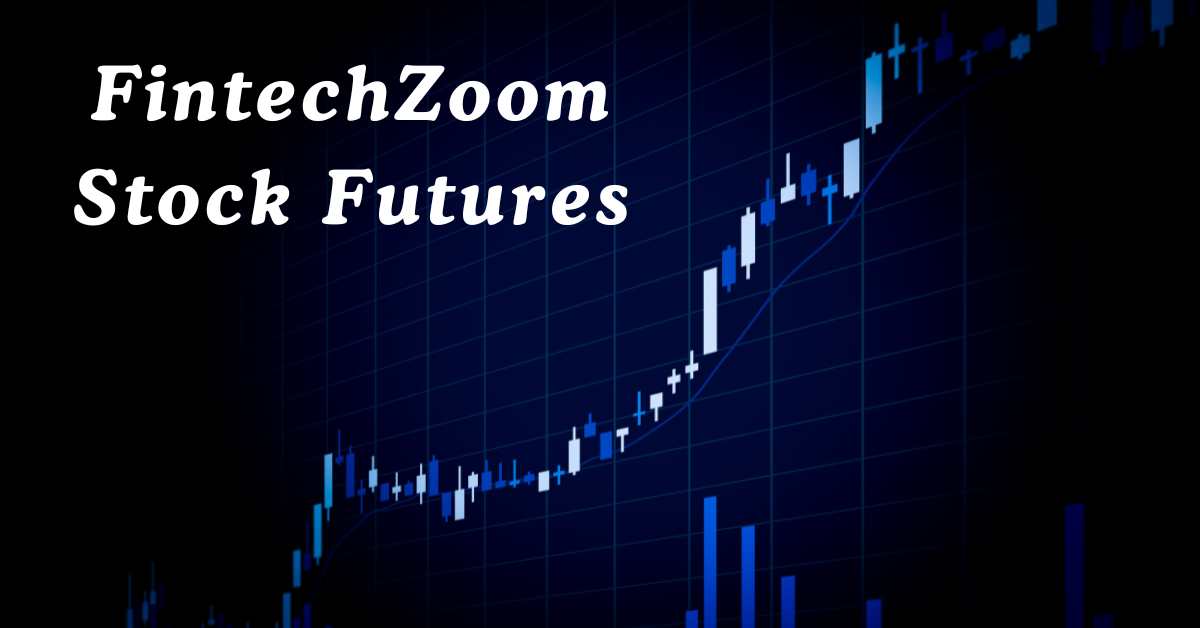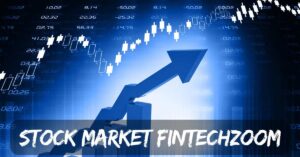In the world of finance, the ability to predict and profit from future market movements is a highly sought-after skill. FintechZoom Stock Futures are one such financial instrument that allows market participants to hedge against potential losses or speculate on future price movements. FintechZoom Stock Futures, a leading platform for financial news and analysis, provides valuable insights. In this comprehensive guide, we will explore the concept of stock futures, their significance, and how FintechZoom can aid in making informed trading decisions.
What Are Stock Futures?
FintechZoom Stock Futures are contracts that obligate the buyer to purchase, or the seller to sell, a specific amount of a stock at a predetermined price on a future date. These financial instruments are widely used in the financial markets for hedging, speculation, and risk management.
Key Features of Stock Futures
Understanding the fundamental characteristics of FintechZoom Stock Futures is essential for effective trading and investment.
Contract Specifications
- Underlying Asset: The asset upon which the futures contract is based, such as a specific stock or a stock index.
- Contract Size: The amount of the underlying asset covered by the futures contract, typically standardized by the exchange.
- Expiration Date: The date on which the futures contract must be settled, at which point the buyer must purchase, and the seller must deliver, the underlying asset.
- Settlement Price: The price at which the futures contract is settled, determined by the market at the expiration date.
Leverage and Margin
- Leverage: Stock futures allow traders to control a large position with a relatively small amount of capital, amplifying potential gains and losses.
- Margin: Traders must maintain a minimum margin in their account, serving as a security deposit to cover potential losses.
Types of Stock Futures
Stock futures can be broadly categorized into two main types, each serving different purposes in the financial markets.
Single Stock Futures
- Definition: Contracts based on an individual stock, allowing traders to speculate on the future price of a specific company.
- Use Cases: Used by investors to hedge against price fluctuations or to speculate on the price movement of individual stocks.
Index Futures
- Definition: Contracts based on a stock index, such as the S&P 500 or the Dow Jones Industrial Average.
- Use Cases: Used by traders to gain exposure to the broader market or to hedge against systemic risks.
The Role of FintechZoom in Stock Futures Trading
FintechZoom provides a wealth of information and analysis on stock futures, helping traders make informed decisions and stay ahead of market trends.
Comprehensive Market Analysis
FintechZoom offers detailed market analysis, covering a wide range of financial instruments, including FintechZoom Stock Futures.
Market News and Updates
- Real-Time News: FintechZoom Stock Futures provides up-to-date news and developments that can impact stock futures, allowing traders to react quickly to market changes.
- Expert Insights: The platform features expert opinions and analyses, offering valuable perspectives on market trends and future price movements.
Technical and Fundamental Analysis
- Technical Analysis: FintechZoom offers technical analysis tools, including charts and indicators, to help traders identify patterns and trends in FintechZoom Stock Futures markets.
- Fundamental Analysis: The platform provides fundamental analysis of companies and indices, helping traders assess the underlying value of the assets involved in futures contracts.
Educational Resources
For traders looking to enhance their knowledge and skills, FintechZoom Stock Futures offers a variety of educational resources on stock futures.
Trading Guides and Tutorials
- Beginner’s Guides: FintechZoom Stock Futures provides comprehensive guides for beginners, covering the basics of stock futures and how to start trading.
- Advanced Strategies: The platform offers tutorials on advanced trading strategies, helping experienced traders refine their skills and optimize their trading strategies.
Webinars and Workshops
- Interactive Learning: FintechZoom Stock Futures hosts webinars and workshops featuring industry experts, offering interactive learning opportunities for traders of all levels.
The Benefits and Risks of Trading Stock Futures
Trading stock futures presents many benefits, but it also carries notable risks. Gaining a clear understanding of these factors is essential for successful trading and effective risk management.
Benefits of Trading Stock Futures
Leverage and Capital Efficiency
- Increased Exposure: Stock futures allow traders to control large positions with a relatively small amount of capital, providing opportunities for significant returns.
- Capital Efficiency: Futures contracts require lower margin requirements compared to outright stock purchases, enabling more efficient use of capital.
Hedging and Risk Management
- Protection Against Price Fluctuations: Traders can use stock futures to hedge against adverse price movements in the underlying asset, reducing risk exposure.
- Diversification: Index futures allow traders to gain exposure to a broad market, providing diversification benefits and reducing unsystematic risk.
Flexibility and Liquidity
- 24/7 Trading: Stock futures can be traded around the clock, offering flexibility and the ability to react to global market events.
- High Liquidity: Futures markets are highly liquid, ensuring that traders can enter and exit positions with minimal impact on market prices.
Risks of Trading Stock Futures
Leverage and Margin Risk
- Amplified Losses: While leverage can amplify gains, it also increases the potential for significant losses, making risk management essential.
- Margin Calls: Traders must maintain sufficient margin in their accounts, and failure to do so can result in margin calls and forced liquidation of positions.
Market Volatility
- Price Fluctuations: Stock futures are subject to market volatility, and sudden price movements can result in substantial gains or losses.
- Systemic Risks: Index futures are exposed to broader market risks, and factors such as economic downturns or geopolitical events can impact their value.
Complexity and Knowledge Requirements
- Understanding Required: Trading stock futures requires a thorough understanding of the market and the underlying assets. These things make it more complex than trading individual stocks.
- Continuous Monitoring: Successful futures trading requires constant monitoring of market conditions and timely decision-making.
Strategies for Trading Stock Futures
To maximize success in stock futures trading, traders can employ various strategies tailored to their risk tolerance and market outlook.
Hedging Strategies
Hedging is a common strategy used by traders and investors to mitigate risk and protect against adverse price movements.
Long Hedge
- Purpose: Protects against price increases in an underlying asset by taking a long position in futures contracts.
- Example: A company expecting to purchase a large quantity of a commodity in the future may use a long hedge to lock in the current price and mitigate the risk of price increases.
Short Hedge
- Purpose: Protects against price declines in an underlying asset by taking a short position in futures contracts.
- Example: An investor holding a portfolio of stocks may use a short hedge with index futures to offset potential losses.
Speculative Strategies
Speculative strategies are employed by traders seeking to profit from anticipated price movements in stock futures.
Trend Following
- Purpose: Capitalizes on established market trends by entering positions in the direction of the trend.
- Example: A trader identifies an upward trend in an index and takes a long position in index futures to profit from the continued rise in prices.
Mean Reversion
- Purpose: Profits from price corrections by entering positions opposite to the prevailing trend.
- Example: A trader observes that a stock’s price has deviated significantly from its historical average and anticipates a return to the mean, taking a short position in stock futures.
Arbitrage Strategies
Arbitrage strategies involve exploiting price discrepancies between related markets to earn risk-free profits.
Cash-and-Carry Arbitrage
- Purpose: Profits from the price difference between the futures contract and the underlying asset.
- Example: A trader buys the underlying asset at the spot price and simultaneously sells the corresponding futures contract, capturing the price spread as profit.
Index Arbitrage
- Purpose: Exploits price discrepancies between index futures and the underlying index components.
- Example: A trader identifies a mispricing between the S&P 500 futures and the index’s constituent stocks, buying the cheaper asset and selling the more expensive one to capture the price difference.
Regulatory and Market Considerations
Understanding the regulatory environment and market conditions is crucial for successful stock futures trading.
Regulatory Framework
Stock futures trading is subject to regulation by financial authorities, ensuring market integrity and protecting investors.
Key Regulatory Bodies
- Commodity Futures Trading Commission (CFTC): Oversees the trading of futures contracts in the United States, ensuring transparency and preventing market manipulation.
- Securities and Exchange Commission (SEC): Regulates the securities markets, including futures contracts based on individual stocks.
Market Conditions
Market conditions, including economic indicators and geopolitical events, can significantly impact stock futures prices and trading opportunities.
Economic Indicators
- Interest Rates: Changes in interest rates can influence stock futures prices, affecting borrowing costs and investor sentiment.
- Inflation Rates: Inflation can impact the value of stock futures, with rising inflation potentially leading to higher interest rates and lower stock prices.
Geopolitical Events
- Global Tensions: Political instability and conflicts can lead to increased market volatility, impacting stock futures prices and trading conditions.
- Trade Policies: Changes in trade policies and tariffs can affect the underlying assets of stock futures, influencing their value and market dynamics.
The Future of Stock Futures and FintechZoom
The future of stock futures trading is shaped by technological advancements, evolving market conditions, and regulatory developments. FintechZoom is poised to play a crucial role in this evolving landscape, providing traders with the tools and insights needed to succeed.
Technological Advancements
Technological innovations are transforming the stock futures market, enhancing trading efficiency and accessibility.
Algorithmic Trading
- Automation: Algorithmic trading uses computer programs to execute trades based on predefined criteria, improving speed and accuracy in stock futures markets.
- Data Analysis: Advanced data analytics tools enable traders to analyze large volumes of market data, identifying trends and opportunities in real-time.
Blockchain Technology
- Transparency: Blockchain technology offers increased transparency and security in stock futures trading, reducing the risk of fraud and manipulation.
- Smart Contracts: Smart contracts enable the automated execution of futures contracts, streamlining the settlement process and reducing transaction costs.
Evolving Market Conditions
The stock futures market continues to evolve, influenced by changing economic and geopolitical dynamics.
Emerging Markets
- Growth Opportunities: Emerging markets offer new opportunities for stock futures trading, with increased access to global markets and diversified trading options.
- Risks and Challenges: Traders must navigate the risks associated with emerging markets, including currency fluctuations and political instability.
Sustainable Investing
- Environmental, Social, and Governance (ESG) Factors: ESG considerations are becoming increasingly important in investment decisions, impacting stock futures markets and trading strategies.
- Green Futures: The development of futures contracts based on sustainable assets, such as renewable energy, offers new opportunities for traders and investors focused on sustainability.
The Role of FintechZoom
FintechZoom is well-positioned to support traders and investors in navigating the future of stock futures trading.
Innovation and Adaptation
- Cutting-Edge Tools: FintechZoom continues to innovate, offering advanced trading tools and analytics to help traders succeed in the evolving market landscape.
- Adaptation to Change: The platform remains agile, adapting to changes in market conditions and regulatory requirements to provide relevant and timely information to its users.
Community and Collaboration
- Trader Community: FintechZoom fosters a vibrant community of traders and investors, facilitating collaboration and knowledge-sharing through forums and discussion groups.
- Industry Partnerships: The platform collaborates with industry experts and organizations to provide comprehensive resources and support for stock futures trading.
Conclusion: Mastering Stock Futures with FintechZoom
Stock futures offer a versatile and powerful tool for traders and investors seeking to capitalize on market opportunities and manage risk. By leveraging the insights and resources provided by FintechZoom, traders can enhance their understanding of stock futures and develop effective trading strategies.
As the financial markets continue to evolve, staying informed and adapting to new developments is crucial for success. With its comprehensive market analysis, educational resources, and innovative tools, FintechZoom is a valuable ally for traders navigating the complexities of stock futures trading.









